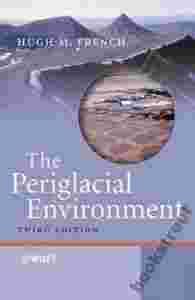|
The Periglacial Environment, Third Edition, provides
an authoritative overview of the worlda s cold,
non-glacial environments. Emphasis is placed upon the
North American and Eurasian polar lowlands, but examples
are also drawn from Antarctica, the Qinghai-Xizang
(Tibet) Plateau, and the northern mid-latitudes. First
published in 1976 and subsequently revised in 1996, the
text has been the international standard forA over 30
years. The Third Edition continues to be a personal
interpretation of the frost-induced conditions,
geomorphic processes, and landforms that typify
periglacial environments. The text is divided into four
parts. Part One discusses the periglacial concept and
its interactions with geomorphology, geocryology and
Quaternary science. It also outlines the range and
variability of periglacial climates and the degree to
whichA landscapes are in geomorphic equilibrium with
prevailing periglacial conditions. Part Two describes
present-day terrain that is either underlain by
permafrost or experiencing intense frost action.The
roles played by cryogenic weathering, ground ice, mass
wasting, running water, wind action, snow and ice, and
coastal processes are systematically analysed. Part
Three summarizes evidence for the existence of
periglacial conditions during the cold periods of the
Pleistocene, with special reference to the mid-latitudes
of Europe and North America. Part Four illustrates the
geotechnical problems associated with human activity and
resource development in periglacial environments, and
discusses the potential impact of global climate change
in the northern high latitudes. This excellent textbook
is an invaluable resource for second and third year
undergraduate students of Physical Geography, Geology,
Environmental Science and Earth Science. The Periglacial
Environment, Third Edition is also anA informative
reading for professionals, researchers and lecturers
working and teaching in the field. |
|

